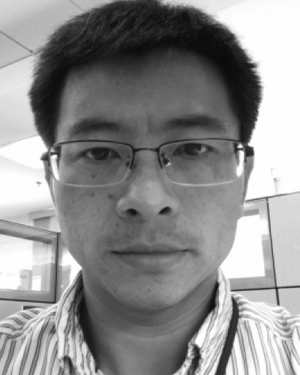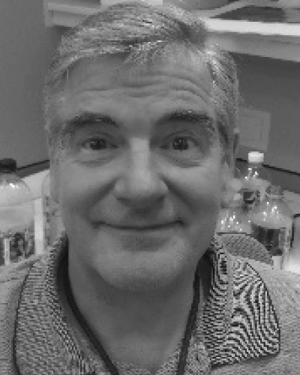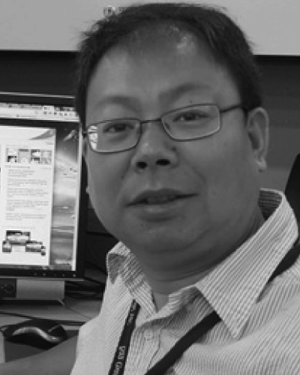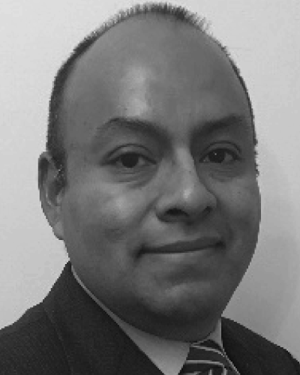Flavio Iturbide-Sanchez (S’03–M’07–SM’19) received the B.S.E.E. degree in electronics engineering from Autonomous Metropolitan University, Mexico City, Mexico, in 1999, the M.S.E.E. degree in electrical engineering from the Advanced Studies and Research Center, National Polytechnic Institute, Mexico City, in 2001, and the Ph.D. degree from the University of Massachusetts, Amherst, MA, USA, in 2007, where he was advised by Prof. S. C. Reising and supported by the National Science Foundation, with a focus on the miniaturization, development, calibration, and performance assessment of low-cost and power-efficient microwave radiometers for remote sensing applications.
From 2001 to 2005, he was a Research Assistant with the Microwave Remote Sensing Laboratory, University of Massachusetts, where he was involved in the design, development, and characterization of highly integrated multichip modules and microwave circuits for low-noise, low-power consumption, high-gain, and high-stability microwave radiometers. From 2005 to 2007, he was with the Microwave Systems Laboratory, Colorado State University, Fort Collins, CO, USA, where he focused on the development, characterization, calibration, and deployment of the low-cost and power-efficient compact microwave radiometer for humidity profiling. From 2008 to 2018, he was with I. M. Systems Group, Inc., Rockville, MD, USA, where he supported the development of operational physical retrieval systems that employ hyperspectral-infrared and microwave observations implemented for the NOAA Polar Operational Environmental Satellites Project, the National Polar-orbiting Operational Environmental Satellite System, and the Joint Polar Satellite System (JPSS). Since 2018, He has been a Physical Scientist with the NOAA/NESDIS/Center for Satellite Applications and Research, College Park, MD, where he has led the calibration and validation of the JPSS cross-track infrared sounder (CrIS) instruments. His research interests include satellite remote sensing, satellite data assimilation, inverse theory applied to geoscience fields, weather forecasting, earth system science, small satellites, and the design of radiometer systems for earth observations based on emerging technologies.
Dr. Iturbide-Sanchez was a recipient of the First-Place Poster Award from the 11th Specialist Meeting on Microwave Radiometry and Remote Sensing Applications (MicroRad), Washington, DC, USA, in 2010, and the Mexican National Council for Science and Technology Graduate Fellowship Award from 1999 to 2004. He was also a Finalist in two IEEE Student Paper Competitions, namely the International Geoscience and Remote Sensing Symposium in Anchorage, AK, USA, in 2004, and the International Microwave Symposium in San Francisco, CA, USA, in 2006.
Flavio Iturbide-Sanchez (S’03–M’07–SM’19) received the B.S.E.E. degree in electronics engineering from Autonomous Metropolitan University, Mexico City, Mexico, in 1999, the M.S.E.E. degree in electrical engineering from the Advanced Studies and Research Center, National Polytechnic Institute, Mexico City, in 2001, and the Ph.D. degree from the University of Massachusetts, Amherst, MA, USA, in 2007, where he was advised by Prof. S. C. Reising and supported by the National Science Foundation, with a focus on the miniaturization, development, calibration, and performance assessment of low-cost and power-efficient microwave radiometers for remote sensing applications.
From 2001 to 2005, he was a Research Assistant with the Microwave Remote Sensing Laboratory, University of Massachusetts, where he was involved in the design, development, and characterization of highly integrated multichip modules and microwave circuits for low-noise, low-power consumption, high-gain, and high-stability microwave radiometers. From 2005 to 2007, he was with the Microwave Systems Laboratory, Colorado State University, Fort Collins, CO, USA, where he focused on the development, characterization, calibration, and deployment of the low-cost and power-efficient compact microwave radiometer for humidity profiling. From 2008 to 2018, he was with I. M. Systems Group, Inc., Rockville, MD, USA, where he supported the development of operational physical retrieval systems that employ hyperspectral-infrared and microwave observations implemented for the NOAA Polar Operational Environmental Satellites Project, the National Polar-orbiting Operational Environmental Satellite System, and the Joint Polar Satellite System (JPSS). Since 2018, He has been a Physical Scientist with the NOAA/NESDIS/Center for Satellite Applications and Research, College Park, MD, where he has led the calibration and validation of the JPSS cross-track infrared sounder (CrIS) instruments. His research interests include satellite remote sensing, satellite data assimilation, inverse theory applied to geoscience fields, weather forecasting, earth system science, small satellites, and the design of radiometer systems for earth observations based on emerging technologies.
Dr. Iturbide-Sanchez was a recipient of the First-Place Poster Award from the 11th Specialist Meeting on Microwave Radiometry and Remote Sensing Applications (MicroRad), Washington, DC, USA, in 2010, and the Mexican National Council for Science and Technology Graduate Fellowship Award from 1999 to 2004. He was also a Finalist in two IEEE Student Paper Competitions, namely the International Geoscience and Remote Sensing Symposium in Anchorage, AK, USA, in 2004, and the International Microwave Symposium in San Francisco, CA, USA, in 2006.View more 





